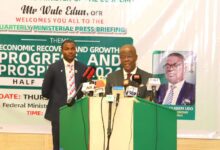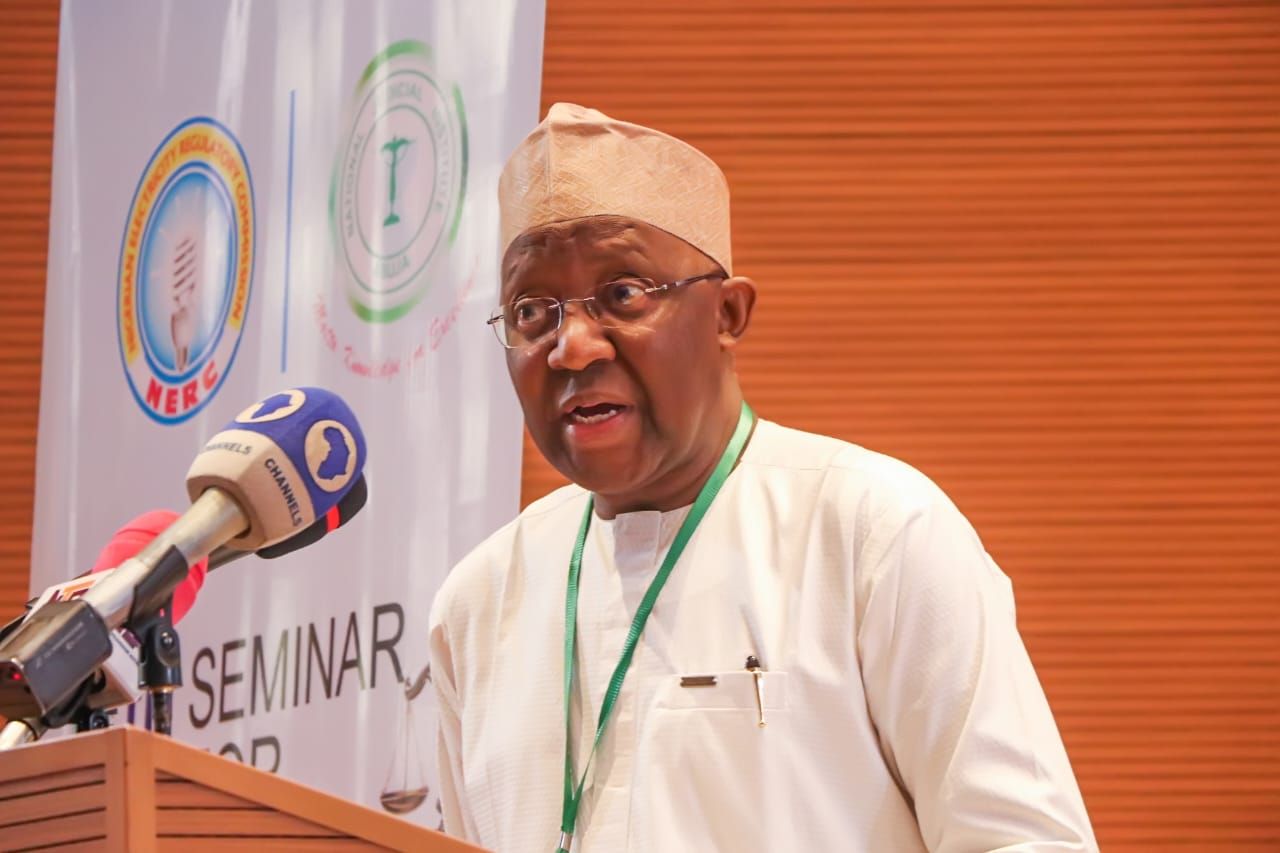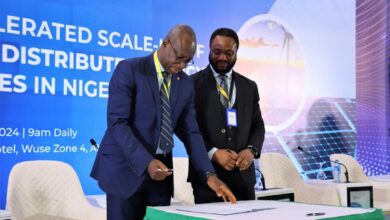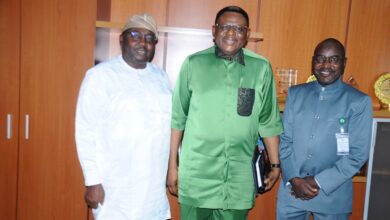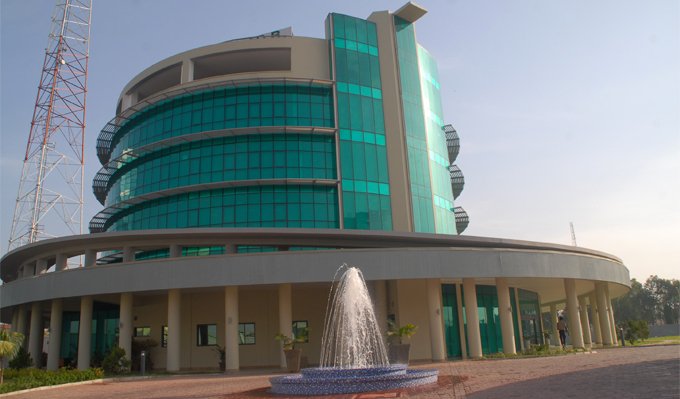
By Sunday Etuka, Abuja
The African Development Bank (AfDB) said, it has earmarked the sum of $1 billion to support the ongoing power sector reforms triggered by the new Electricity Act, 2023, in Nigeria.
AfDB Vice President in charge of Power, Energy, Climate and Green Growth Complex, Dr. Kevin Kariuki, announced the amount in his Opening Remarks at the 8th edition of the Africa Energy Market Place (AEMP), currently holding in Abuja, Nigeria.
Dr. Kariuki said, “at AfDB we put our money where our mouth is! As is clearly manifested by the fact, we will be shortly seeking board approval for a 1 billion US dollars policy-based operation (PBO) with significant energy component aimed at supporting the ongoing power sector reforms triggered by the new Electricity Act.
“The timing of the AEMP and the proposed policy-based lending focused on the energy sector is therefore not coincidental. We will finance the policy recommendations to actualize the expected outcomes from the National Integrated Electricity Policy and Strategic Implementation Plan”, he added.
He noted that the Bank was acutely aware of the extent of the challenge in the sector, ranging from addressing the electricity access deficit to rehabilitating and upgrading the power system to meet a load of 20 Gigawatts which is believed to be the true demand, for Nigeria’s 200 million people.
He maintained that the success of the ongoing sector reforms would be measured by the speed of achievement of quality electricity access for all, correcting the ignominy of having the highest electricity access deficit in the world.
The AfDB VP who averred that the 90 million out of 600 million people in Africa without access to electricity live in Nigeria, stressed that the effectiveness of the reforms would also be measured based how much of the over 13GW of installed capacity Nigeria utilizes for its development; improvement in transmission capacity; reduction in average frequency and duration of supply interruption; the extent they reduce system losses [from 50% to early teens]; and ultimately the financial viability of the entire power sector value chain.
He said, “as my President elegantly put it, no economy can grow in the dark. No economy can industrialize in the dark. And no economy can be competitive in the dark. In the event, just imagine how Nigeria’s economy could be transformed if it were to have reliable power! Hopefully, this AEMP constitutes that first important step for the revitalization of the power sector”.
Dr. Kariuki noted that enabling environment would maximize the value of ongoing investments, including the USD 256.2 million Nigeria Transmission Expansion Project that entails the construction of 500km of transmission lines and four substations with capacity of over 1000MVA; and the USD 200 Million Nigeria Electrification Project, which will build 150 mini-grids.
“Moreover, we are financing a study for the Transmission Company of Nigeria to explore deployment of Battery Energy Storage Systems to enhance grid stability and facilitate greater uptake of renewable energy generation”, he added.
Speaking on generation, he said, “Nigeria is part of our flagship USD 20 Billion Desert to Power Initiative, which aims to generate 10,000 MW of solar power across 11 countries in the Sahel region to provide power to 250 million Africans. This portends great promise for increasing the proportion of renewable energy is Nigeria’s energy mix.
“Through this multi-prong approach of supporting policy development, financing critical power sector infrastructure, and providing technical assistance and capacity building, we strongly believe that our partnership with the Federal Government to ensure a viable and sustainable power sector will yield the desired result”, he said.
Earlier in his Welcome Remarks, the Director General, Nigeria Country Department of AfDB, Mr. Lamin Barrow said, the African Development Bank launched the Africa Energy Market Place (AEMP) as a collaborative platform to facilitate dialogue between key stakeholders in government, the private sector, and development partners.
He said, the event provides a platform for structured dialogue on key issues affecting sustainable development of the energy sectors in Regional Member Countries (RMCs) with a view to help address policy and regulatory bottlenecks as well as promote reforms to accelerate investments in their energy sector.
According to him, since its inception in 2018, the AEMP has emerged as a landmark event where policymakers, regulators and investors discuss and chart pathways for transforming the power sector in African countries.

